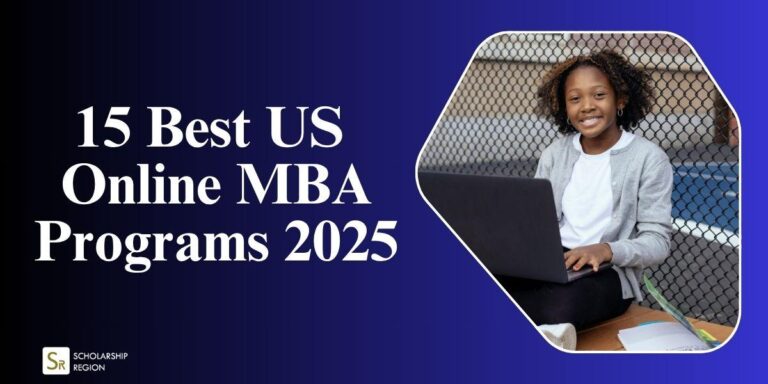2025 MBA Programs: A Comprehensive Guide to Choosing the Ideal Business School
Leading MBA Programs Cultivating Tomorrow’s Business Innovators
As the global business environment grows increasingly competitive, top MBA programs are continuously adapting to prepare future leaders with cutting-edge skills and strategic insights. Prestigious institutions such as Harvard Business School, Stanford Graduate School of Business, and Wharton are at the forefront of this evolution, integrating emerging technologies, sustainability principles, and ethical leadership into their academic frameworks. These schools prioritize hands-on learning experiences, including international immersions and collaborations with global corporations, to nurture versatile executives ready to excel in diverse industries.
Distinctive Attributes of Premier MBA Programs:
- Utilization of artificial intelligence and advanced analytics for strategic forecasting
- Emphasis on understanding global market dynamics and managing multicultural teams
- Dedication to social responsibility and sustainable business practices
- Extensive alumni networks that support mentorship and career progression
| Institution | Program Length | Signature Focus |
|---|---|---|
| Harvard Business School | 2 years | Case-based learning with global field experiences |
| Stanford Graduate School of Business | 2 years | Entrepreneurship and technology integration |
| Wharton School | 2 years | Data-centric decision-making approaches |
| INSEAD | 10 months | Intensive international exposure and diversity |
Essential Factors to Consider When Selecting an MBA Program in 2025
Choosing the right MBA program requires a strategic evaluation of multiple elements that align with one’s professional objectives and the shifting demands of the global economy. Paramount among these are accreditation standards and faculty expertise, which guarantee academic excellence and access to pioneering thought leaders across business disciplines. Equally critical is the strength of the program’s alumni network and industry ties, which often serve as catalysts for career advancement in a competitive job market.
Applicants should also assess a program’s commitment to innovation and adaptability, focusing on:
- Incorporation of cutting-edge technologies like AI, machine learning, and big data analytics
- Practical learning opportunities such as internships, live consulting projects, and case competitions
- Emphasis on diversity and global business perspectives to prepare for international leadership roles
| Selection Criterion | Career Impact | Significance |
|---|---|---|
| Program Prestige | High | Shapes employer perceptions and networking potential |
| Curriculum Innovation | Medium | Equips students with future-ready competencies |
| Alumni Engagement | High | Provides mentorship and access to job markets |
| Diversity & Inclusion | Medium | Enhances creativity and global business acumen |
Innovations in MBA Curricula and Their Influence on Career Trajectories
Modern MBA programs are embracing a transformative approach by embedding digital innovation, sustainability, and data-driven methodologies into their core teachings. Courses covering artificial intelligence, blockchain technology, and advanced analytics are becoming standard, equipping graduates with the expertise necessary to lead in sectors such as fintech, renewable energy, and digital commerce—industries experiencing rapid growth and disruption.
Moreover, there is a growing emphasis on cultivating interpersonal and leadership skills, including emotional intelligence, cross-cultural communication, and ethical decision-making. Through collaborative assignments, immersive global experiences, and real-world projects, students develop the agility and insight required to navigate complex business environments. Alumni frequently report accelerated career advancement, diversified professional opportunities, and increased entrepreneurial success, underscoring the value of these contemporary educational trends.
Strategic Advice for MBA Applicants Targeting the 2025 Intake
With the MBA admissions landscape becoming more competitive, candidates should prioritize programs that champion innovation, international exposure, and leadership cultivation. Institutions like Stanford Graduate School of Business and INSEAD are exemplary in fostering entrepreneurial mindsets and offering expansive global networks, preparing students to excel in multifaceted markets.
Critical considerations for prospective students include:
- Specializations aligned with burgeoning fields such as fintech, sustainable energy, and AI-driven management
- Flexible hybrid learning formats that combine virtual accessibility with immersive on-campus experiences
- Robust alumni communities that facilitate mentorship and career placement in dynamic industries
- Global immersion programs designed to enhance cross-cultural leadership and negotiation capabilities
| Business School | Program Strengths | Average GMAT Score |
|---|---|---|
| Stanford Graduate School of Business | Entrepreneurship, Technological Innovation | 733 |
| INSEAD | Global Leadership, Diverse Student Body | 710 |
| Wharton School | Finance, Business Analytics | 722 |
| London Business School | Global Strategy, International Exposure | 700 |
Final Thoughts: Navigating the 2025 MBA Application Journey
As the 2025 MBA admissions season draws near, candidates are presented with an array of distinguished programs, each offering unique advantages tailored to different career paths. Whether your priority lies in global networking, specialized curriculum tracks, or accelerated career growth, the schools featured in Fortune’s latest rankings serve as valuable reference points. By aligning personal ambitions with these insights and conducting thorough research, applicants can confidently select the MBA program that best supports their professional vision. With deliberate preparation and strategic choices, success in the 2025 business school admissions process is well within reach.




